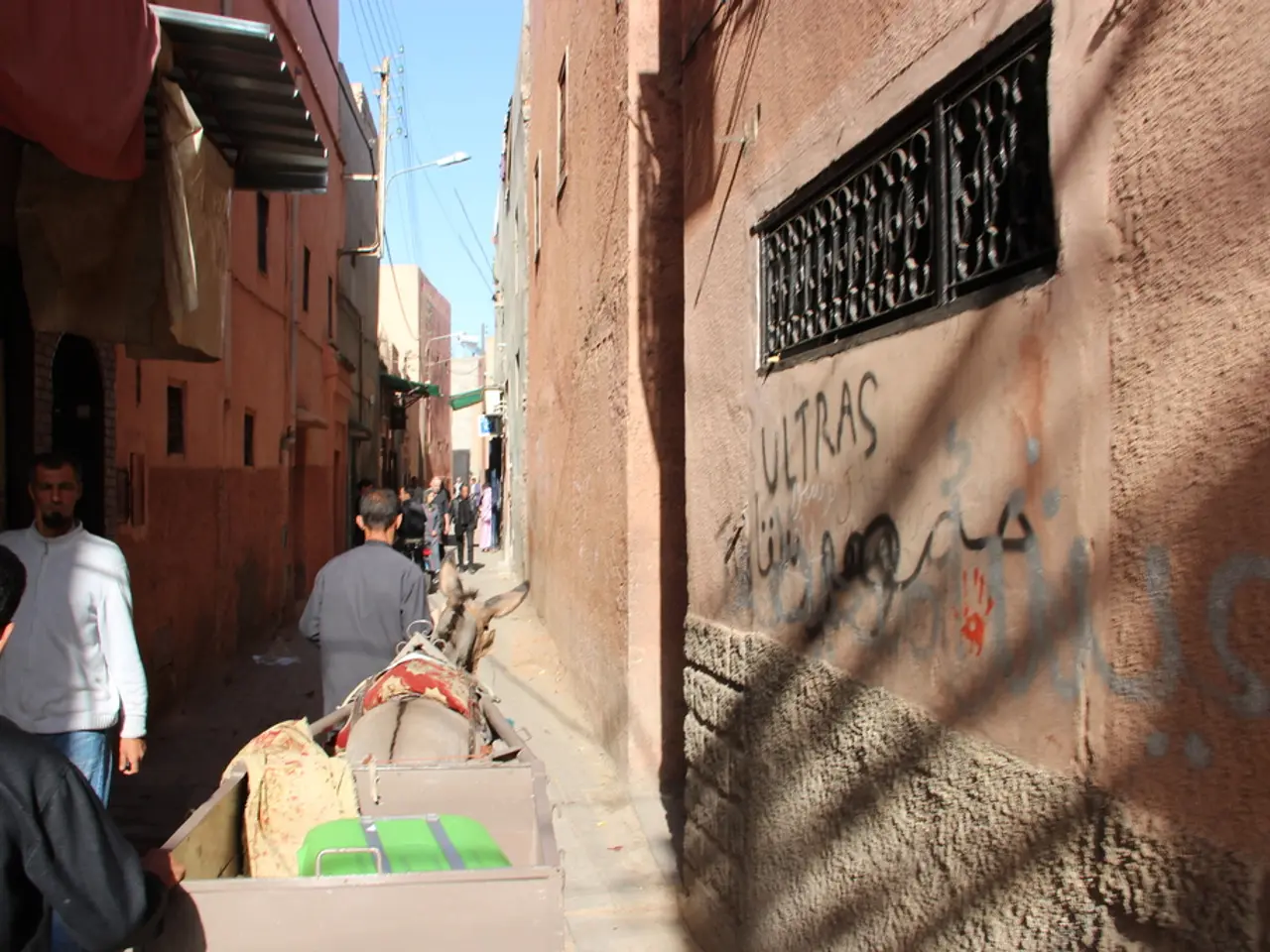Controversial Israeli Gaza Policies Face Global Scrutiny
International Criticism Mounts Over Israel's Plan for Gaza Takeover
Israel's proposal for a complete military takeover of Gaza has sparked strong international criticism, with concerns over potential humanitarian law violations and worsening the already dire humanitarian crisis in the region.
The UN High Commissioner for Human Rights, Volker Türk, has urged an immediate halt to the plan, stating that it contravenes international law, including a ruling by the International Court of Justice that Israel must end its occupation and honour Palestinians' right to self-determination.
The UN warns of the potential for massive forced displacement, widespread killing, suffering, and atrocity crimes in Gaza. This military approach risks devastating the already battered enclave and exacerbating the conflict between Hamas and Israel. Instead, the UN urges Israel to prioritise saving civilian lives by allowing full, unfettered humanitarian aid access to Gaza.
The UN also calls for the immediate and unconditional release of hostages held by Palestinian armed groups and the release of Palestinians arbitrarily detained by Israel.
The European Union (EU) has joined the chorus of criticism, with EU Commission President Ursula von der Leyen and EU Council President António Costa urging the Israeli government to reconsider its decision to expand military operations in the Gaza Strip. The plan could potentially violate humanitarian international law, according to the foreign ministries of several countries.
Qatar, an important mediator in indirect negotiations between Israel and Hamas, has condemned Israel's plans, stating that it poses a dangerous escalation and threatens to further exacerbate the humanitarian crisis in the Gaza Strip. The United Arab Emirates (UAE) has also called for de-escalating measures and warned of the spread of violence, tensions, and insecurity throughout the region.
The partners in the joint statement, which includes several countries, have called on the international community to work towards a lasting ceasefire and aid deliveries for the suffering population in the Gaza Strip. The Palestinian Authority (PA) should play a central role in a future government in the Gaza Strip, as suggested in the joint statement, but Israel has rejected this proposal.
The Israeli security cabinet has approved an expansion of military operations in the Gaza Strip and the capture of the city of Gaza, on the proposal of Prime Minister Benjamin Netanyahu. The five principles for ending the war in the Gaza Strip, as decided by the Israeli security cabinet, include the disarmament of the Islamic Hamas, the return of all hostages, the demilitarization of the Gaza Strip, Israeli security control of the coastal region, and the establishment of a civil administration that would not be subject to the terrorist organization Hamas or the Palestinian Authority (PA).
However, these plans have been met with rejection by Germany, Britain, Italy, New Zealand, and Australia, among others. The Dutch Foreign Minister, Caspar Veldkamp, has stated that Israel's government is losing support in Europe. The UN Security Council will convene an emergency meeting on the matter on Sunday, and UN Secretary-General António Guterres has warned of a "dangerous escalation" in the situation. Germany has suspended the export of military goods that could be used in the Gaza war.
The UN, EU, and several countries have urged Israel to reconsider its plans, emphasizing the potential for grave humanitarian consequences and legal violations. The international community, led by the UN, views Israel's plans as a serious escalation and calls for a ceasefire and respect for humanitarian law to protect civilians and promote a peaceful two-State solution.
References: [1] UN High Commissioner for Human Rights. (2022). Statement on the situation in the Occupied Palestinian Territory. Retrieved from https://www.ohchr.org/en/statements/2022/05/statement-situation-occupied-palestinian-territory
[2] United Nations. (2022). Security Council to hold emergency meeting on Israel-Palestine crisis. Retrieved from https://www.un.org/news/press/docs/2022/sc14940.doc.htm
- The international community, including the UN High Commissioner for Human Rights and the UN Security Council, has expressed concern over Israel's proposed military takeover of Gaza, fearing potential violations of humanitarian law and exacerbation of the ongoing humanitarian crisis.
- The plan for a Gaza takeover is facing criticism from various political arenas, such as the European Union, Qatar, and the United Arab Emirates, who warn of increased conflicts, violations of international law, and worsening humanitarian circumstances in the region.








